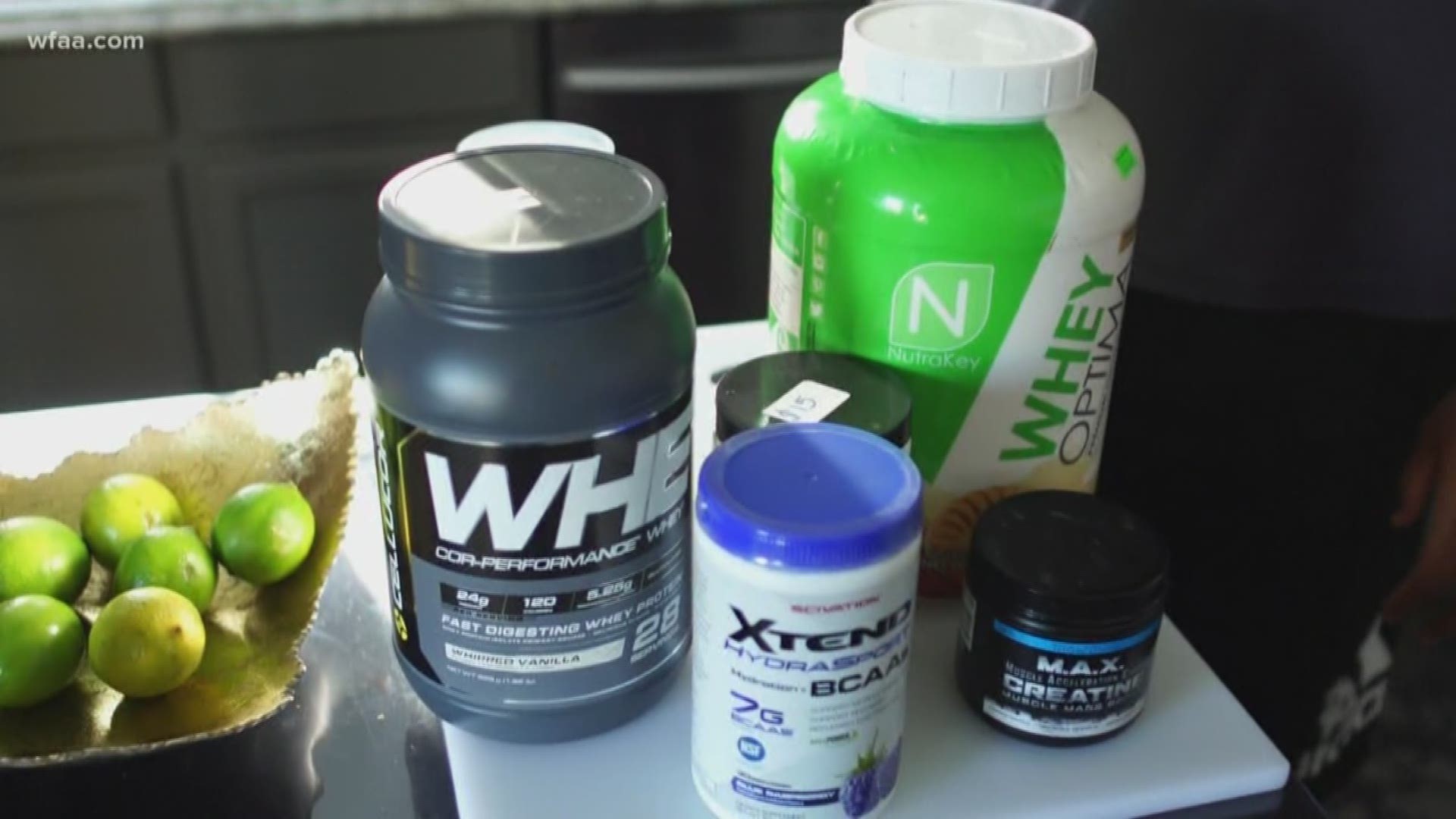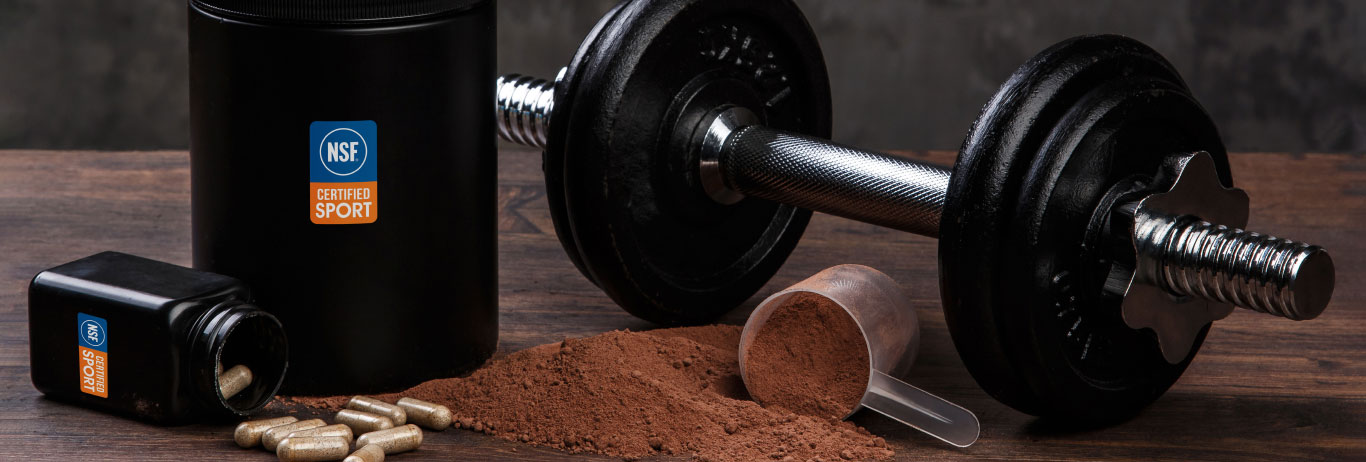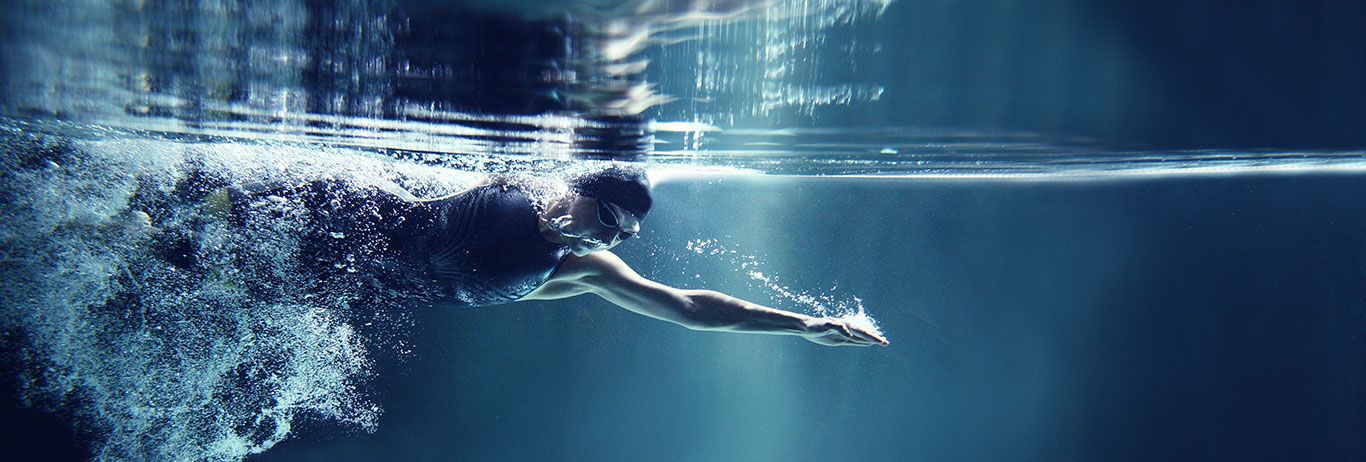CEDAR HILL, Texas — This content is sponsored by Children's Health.
"I work my butt off every day."
The words reverberate through the Ford family's kitchen in Cedar Hill.
It's 7:30 a.m. on a Friday in July. Cedar Hill High School senior Courtland Ford stuffs his workout clothes, shaker bottles and supplements into a drawstring backpack.
"This is more of a recovery drink," he says, putting a small tub of amino acids into his bag. "I take this after every workout."
Tubs of supplements litter the cupboards.
"Whey protein after a hard workout," he recites. "I try to take this twice a day."
Courtland scoops five grams of creatine into his mouth and swallows it.
"To help boost the muscle mass," he says, before chugging a bottle of water and clunking the empty bottle onto the kitchen counter.
The 6'6", 300-pound offensive lineman is a four-star prospect with nearly 20 Division 1 offers.
He was previously committed to LSU, but he reopened his recruitment in June.
"Some college coaches say a lot of the athletes use creatine," Courtland notes. "So, that really motivated me to say, 'Oh. Since they're taking creatine, I may as well start taking it also.'"
Courtland's mother heads out the door to her job. His father, Clint, watches him pack his bag.
"Man, I didn't know anything about taking supplements growing up," says Clint, who played college basketball at Western Illinois.
How do you know what's safe?
"A supplement is meant to supplement a well-balanced diet," states Noel Williams, a sports performance dietitian for the Andrews Institute at Children's Health. "The industry is very unregulated. What you see on the label isn't always what you get in the product."
Health and fitness supplements are a billion-dollar industry that goes largely unregulated. As a result, there are hundreds of different companies and thousands of different products.
"They're everywhere," says Clint. "You can go to Walmart and get them. Walgreens. Any store you go in, for the most part, you can get a protein shake."
"It's overwhelming to consumers who step into stores and they're not really sure what to look for," says Williams.
So, how can parents know what is a safe product for them or their teenagers?
"I look for certifications because I don't want Courtland taking anything illegal," says Clint.
NSF Certified for Sport is a third-party certification that tests products to confirm they only contain the ingredients listed on the label. The products are also tested against banned substances.
"We sports dietitians recommend [NSF] as the gold standard," says Noel.
NSF has a listing of products, which have been tested and approved.
If you're on the go, you can download the NSF app which provides the searchable list of tested supplements.
The supplement industry has skyrocketed over the last 20 years, by feeding on consumer's insecurities and providing false-promises of a better you.
If you're considering supplements for your diet or fitness routine, Noel suggests you consult a dietician to determine your personal needs.
Because what Courtland needs may be quite different than what you need.
'Beneficial if you have the workload'
It's almost 8 a.m. Clint and Courtland leave the house together.
On his way to work, Clint drops off Courtland at "summer camp."
From morning until early evening, Courtland works out at A+D1 Sports Training in Carrollton.
A+D1 is owned by five-time Pro Bowl cornerback Aqib Talib and seven-time Pro Bowl linebacker Von Miller. (Talib and Miller won Super Bowl 50 with the Denver Broncos.)
Rodney Harris is the head trainer at A+D1. He played defensive back at Kansas and was college teammates with Talib.
"It's a microwave society, nowadays," says Rodney. "People don't want to wait. A guy will see me, see me lift and see my veins and assume I took something. No, I didn't."
Rodney trains dozens of premiere college and NFL athletes. He is also Courtland's personal trainer.
Rodney says he does not take supplements. He adheres to a clean diet and high-intensity exercise.
"Supplements are beneficial if you have the workload to make them make sense," preaches Rodney. "If the workload does not make sense, you're just loading your body up with a lot of ingredients that you don't even know what the hell they're doing."
What's the workload that makes sense? How many hours of intense physical activity per day?
"Three to four hours. Three to four."
Rodney does not recommend supplements to teenagers or adults, unless their workout regimen warrants them.
"That creatine, those BCAAs and all that stuff, they're going to be beneficial to a guy that's working his [butt] off daily."
As Rodney barks orders, Courtland lifts tires and sprints in a sand pit.
The high school senior finishes a circuit and sits down to catch his breath.
"Monday through Friday. No breaks off. Trying to be no.1. Ain't no stopping."
He works his butt off every day.



